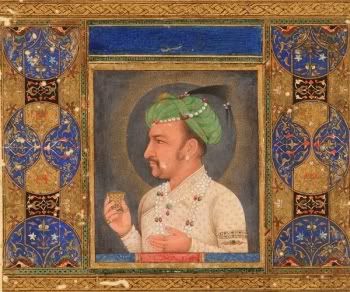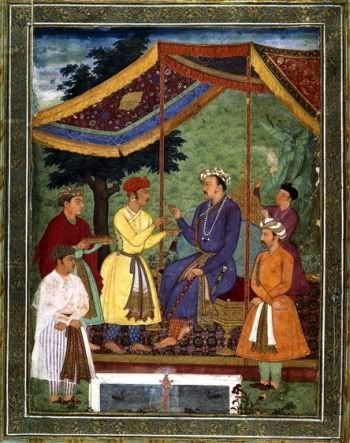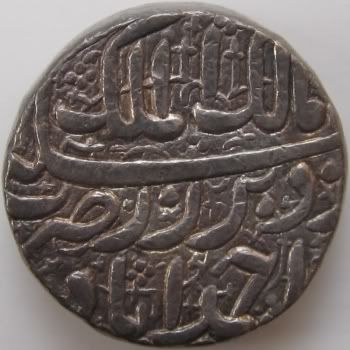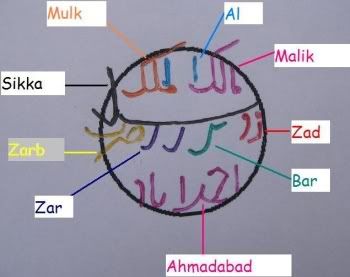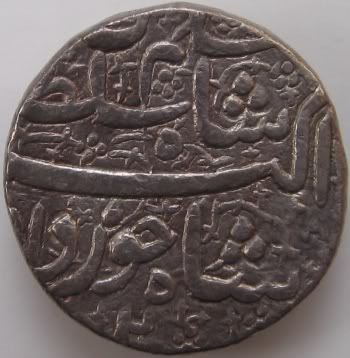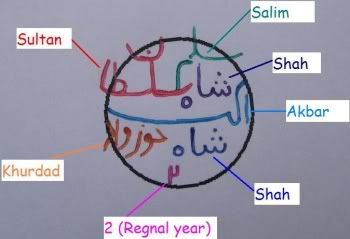Mass=11.3 g
Description (from
The Standard Guide to South Asian Coins and Paper Money Since 1556 and Mr. Lingen's comments on Zeno):
"During the last decade of Akbar's reign, his son Salim [later Emperor Jahangir] grew increasingly restive in his desire to assume supreme power. He rebelled outright several times, and, as governor of Allahbad Province, refused to recognize Akbar's suzereignty. The silver coins of Allahabad of this period were issued anonymously without following the imperial style, but with a Persian poetic couplet [and sometimes the Ilahi month and date. Ilahi years 44 to 49 are known, as well as a not dated variety (this one)]."
This coin has the
Bagharb-wa-Sharq (In the West and the East) couplet:
Hamesha Hamchu Z're Mihir Wa Mah Raij Bad
Bagharb-wa-Sharq Jahan Sikka AllahabadLike the Gold of Sun* and the Moon, May Always be Current,
In the West and the East of the World, the Coin of Allahabad
*I think "Gold" here applies only to "Mihir" (Sun) and not "Mah" (moon). Due to similarity of colour, gold is often equated with the sun and moon with silver in poetic couplets. Or maybe "Z're" in this couplet was intended to have a more generic meaning (e.g., money).
Obverse Hamesha Hamchu Z're Mihir Wa Mah Raij Bad (Like the Gold of Sun and the Moon, May Always be Current)
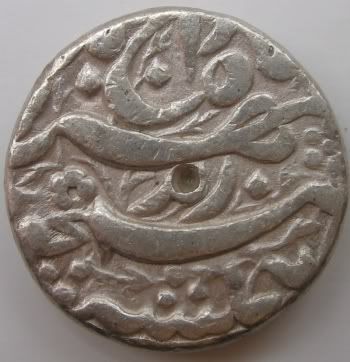
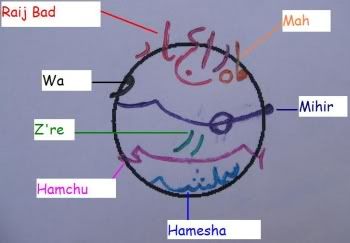 Reverse Bagharb-wa-Sharq Jahan Sikka Allahabad
Reverse Bagharb-wa-Sharq Jahan Sikka Allahabad (In the West and the East of the World, the Coin of Allahabad)
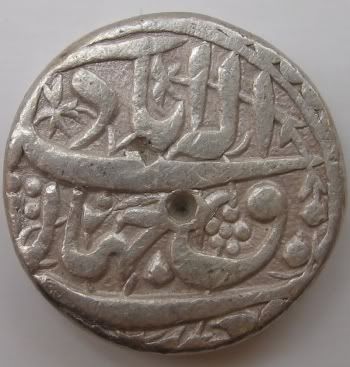
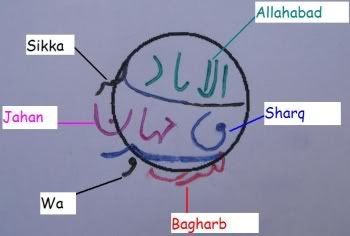
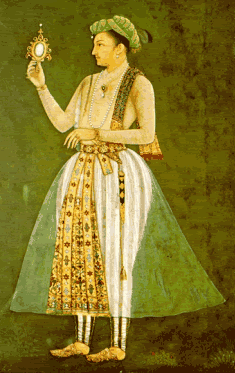 Prince Salim
Prince SalimFrom The Oxford History of India by Vincent A. Smith:
"Prince Salim continued in open rebellion, holding court as a king in Allahabad. In August 1602 he inflicted a terrible blow upon his father's feelings by hiring a robber chief named Bir Singh Bundela to murder Akbar's trusted friend and counsellor Abu-l Fazl, whom the prince hated and feared. A temporary and insincere reconciliation between father and son was patched up by Salima Begam in 1603. But no real peace was possible until after the death of Prince Daniyal, which occurred in April 1604, when he died from effects of drink, like his brother Murad. Salim being then the only son left, Akbar became really anxious to arrange terms with him. The one other possible successor was Salim's son, Prince Khusru, a popular and amiable youth, whose claims were favoured by Raja Man Singh and Aziz Koka.
In November 1604 Salim was persuaded to come to court, probably under threats that, if he refused, Khusru would be declared heir apparent. His father recieved him with seeming cordiality. He then drew him suddenly into an inner apartment, slapped him soundly in the face, and confined him in a bathroom under the charge of a physician and two servants, as if he were a lunatic requiring medical treatment. After a short time, the length of which is variously stated, Akbar released his son, restored him to favour, made him viceroy of the province to which Danuyal had been appointed, and allowed him to reside at Agra as the acknowleded heir apparent
The prince was cowed by his father's rough handling and gave no further trouble."
Also of interest:
http://en.wikipedia.org/wiki/Anarkali
